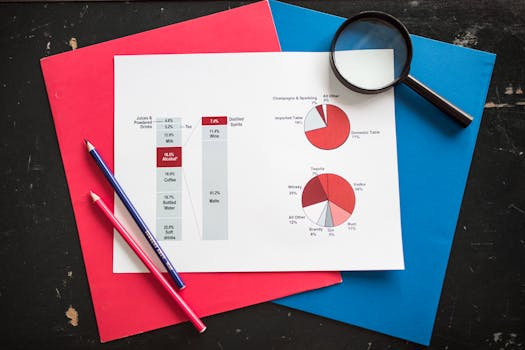Big Data Analytics: Predicting Real Estate Market Trends
If you’re a real estate agent, investor, or homeowner, you know that the real estate market can be a volatile and unpredictable place. It’s difficult to accurately predict market trends and make informed decisions, but that’s where big data analytics comes in. Big data analytics is revolutionizing the way we understand and analyze the housing market, providing valuable insights that can help us make smarter investment and buying decisions. In this article, we’ll explore how big data analytics is being used to predict real estate market trends and its impact on the industry. So, let’s dive in and see how big data is changing the game for real estate professionals.
The Power of Big Data in Real Estate
First, let’s define what we mean by “big data.” Big data refers to the massive amount of information that is collected, stored, and analyzed to reveal patterns, trends, and insights. In the real estate industry, this data includes property prices, sales history, demographic data, economic indicators, and more. With the rise of digitalization and the use of technology in all aspects of our lives, the amount of data available has exploded in recent years.
In the past, real estate professionals relied on their experience, intuition, and market knowledge to make decisions. However, with the vast amount of data now available, the traditional approach is no longer enough. Big data analytics allows real estate agents, investors, and developers to make data-driven decisions that are not only more accurate but also more profitable.
How Big Data is Used to Predict Real Estate Market Trends
Market Analysis and Demand Forecasting
One of the most significant advantages of big data in real estate is its ability to analyze market trends and forecast demand. With the help of machine learning algorithms, big data software can analyze historical data and current market conditions to predict future trends accurately. This information is invaluable for real estate professionals as it allows them to identify potential hotspots for investment, understand what types of properties are in demand, and make data-driven investment decisions.
For example, big data can be used to analyze demographic data, such as population growth, income levels, and employment rates, to determine which areas are experiencing a surge in demand for housing. This information can then be used to inform developers about where to build new properties and help real estate agents understand which properties are likely to sell quickly.
Pricing Analysis and Competitor Insights
Pricing is a critical factor in the real estate market, and big data analytics can provide valuable insights into how properties are priced and how they compare to their competitors. By analyzing historical data and current market trends, big data software can determine the fair market value of a property. This information is particularly useful for home sellers who want to price their property competitively or for buyers who want to negotiate a fair price.
Additionally, big data can provide insights into what features and amenities are most in demand in a particular market, giving developers and real estate agents an edge in understanding what buyers are looking for. This information can also be used to identify any gaps in the market and inform developers about what types of properties are needed in a specific area.
The Impact of Big Data in the Real Estate Market
The use of big data in real estate is not only revolutionizing the way we analyze and predict market trends, but it’s also changing the industry itself. With the vast amount of data available, real estate professionals now have access to more accurate and comprehensive information than ever before. This allows for more precise pricing, development, and investment decisions, ultimately leading to a more efficient and profitable market.
Moreover, big data is also streamlining the real estate process for buyers and sellers. With the use of big data software, property listings can be tailored to individual buyers based on their preferences and needs. This personalized approach makes searching for a new home more efficient and enjoyable and can also help sellers attract the right buyers for their property.
Conclusion
In conclusion, big data analytics is transforming the real estate market by providing valuable insights that allow for more accurate predictions and informed decisions. By analyzing market trends and forecasting demand, big data software is changing the game for real estate professionals. With the increasing availability and use of big data in the industry, we can expect to see further developments and advancements that will continue to shape the way we buy, sell, and invest in real estate.










